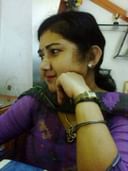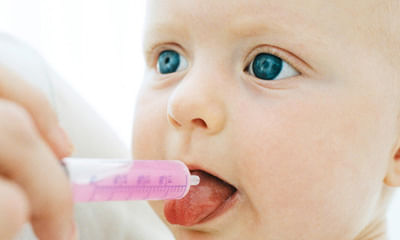New Mom New Child Food For Both!!
Breast milk is a vital food for any child. But feeding a child is the most tiring job. Most of the new moms complain about the quantity of milk, discomfort during feeding and appetite of the child. There are certain nursing ideas which can make both child and mother happy.
How to feed the baby?
The right position of the baby. The baby should position the mother entirely; head, chest, genital, knees. Grip the baby so that the buttocks are in one hand and the head is in the bend of the elbow. Let the other hand slip under the breast with all the four fingers supporting the breast but not on the areola, the darker area around the nipple. Tickle the baby's lower lip with the nipple to get the mouth open wide. Pull the baby's body in quickly so that the mouth fixes on the areola.
There should be no pain while feeding. If the baby is sucking incorrectly, use fingers to break the suction and reposition him.
If the baby is drifting while feeding, burp him, wake him and switch sides. Feeding time varies from 20 to 30 minutes.
Nurse on one side, if the baby is losing interest, switch side. Next time start with the side the feeding ended the time before.
In the early weeks, a baby feeds 8 to 12 times a day. Human milk is designed so that a baby needs to nurse frequently. It creates better bonding between mother and child.
If the baby is positioned right, there is no soreness of the nipple.
There are glands to provide oil to the feeding area so no chemicals or soap should be used.
Burping the baby is necessary after every feeding. Babies usually swallow air. It is most likely to happen if the baby cries during feeding. The swallowed air takes up room in the stomach, making the baby uncomfortable. If the air is not removed, it may spit some of the undigested milk. If babies slow down while eating, even though they have eaten little, they need to be burped in the middle of the meal. All babies need to be burped until 3 months of age. By 5 months, they learn how to burp themselves.
A mother should talk to the baby, play and tickle the baby before and after feeding. This provides an affectional bond between them. This promotes the social development of the child. If the feeding situation is not pleasant, if the mother is tensed or frustrated and doesn't feel like feeding, holds the baby awkwardly or handle him roughly, the baby will associate discomfort with the mother's presence, the child will grow up as an irritable person. The child learns social development, trust, emotional development from the early days of life.
What the new mom should eat?
If a mother is hungry, she is irritated while feeding. A mother needs more food than she was pregnant. The food should be rich in nutrients. Effect of mother's diet depends on the composition and output of milk. In addition to calories, the need for proteins, calcium, iron, vitamin a or beta carotene, thiamine, riboflavin, niacin, folic acid, ascorbic acid and vitamin b12 is considerably high during lactation. The growing infant needs a sufficient amount of nutrients for the rapid growth of tissues. The infant takes all these nutrients from mother's milk.
Include a generous serving of milk, citrus fruits, green leafy vegetables and a whole grain like ragi in the diet.
Along with the increased food intake, increased fluid intake is also necessary to maintain an adequate supply of breast milk. Liquids in the form of juices, tea, milk, milk-based beverages, lemon drink, coconut water can be taken in between the meals.
Food with strong flavour may alter the taste of breast milk. Such foods should be avoided.
Alcohol and drugs enter breast milk and interfere with infant development. Such food should be restricted.
Sufficient rest is needed.
Encourage that the women are not emotionally disturbed during lactation.
There are certain traditional foods which are' galactagogues. Sago, black cumin, garlic, rice, toor dal, sabja seeds, khas are some food items which increases the milk production.
There are certain superstitions and myths associated with breastfeeding which are harmful to both mother and baby. There have to be taken care of.



+1.svg)
